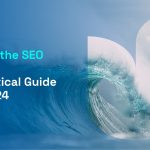Is SEO forever?

As both SEOs and their clients invest a lot of time and energy to keep up with the best practices of this modern facet of marketing, they may wonder how much value that investment has in the long run. SEO is not only a very new area of marketing, but it is also rapidly evolving. This could be reminiscent of the image of a bright flame that quickly burns out.
Will it lose its value? Or might it be replaced by a smoother and shinier alternative, as is common with technical shooting stars?
While these concerns are understandable, the odds are not good that SEO will disappear anytime soon - or at least not anytime soon. First of all, while it is technically a new form of marketing, at its core it uses proven marketing practices such as brand building and reputation management. Moreover, by looking at some key moments in SEO's short biography, we can find some clues to its likely longevity.

How did SEO start?
It is debatable what should be considered the birth of search engine optimization (SEO), as organic marketing can be done in many ways. Thus, virtually any attempt to organically improve visibility in a search engine can be considered SEO. Nevertheless, just deciding to have your website indexed by search engines immediately after setting it up could be considered the earliest form of search engine optimization.
However, many consider the increasing use of online directories in the late nineties as the official "birth" of search engine optimization. These efforts demonstrate a somewhat more sophisticated approach to building visibility online. Along those lines, the first use of the phrase "search engine optimization" is credited to Bruce Clay, in 1997, when he used the term to describe his company's services.

What is the relationship between search engines and SEO?
Since search engines like Google frequently update their algorithms and are notoriously quiet about the details of these updates, it's easy to get the impression that these companies are somewhat suspicious or even hostile to SEO. However, it's important to keep in mind that search engines are concerned with delivering high-quality search results to users, and SEOs create lots of high-quality content to serve a wide range of niche interests. In this way, search engines and SEO have a highly symbiotic relationship.
However, there are also unscrupulous actors who exploit search engine systems to make malicious, quick profits. These efforts can clog the search engine with superficial, unsecured content that damages the search engine's function and reputation. As a result, search engines have found it necessary to increase the complexity of their algorithms and keep some details secret.
White Hat SEOs do use all the algorithm information they can get to back up their efforts, but ultimately they fall back on basic best practices like creating helpful, high-quality content. In addition, Google periodically releases some important information about algorithm updates, which indicates that Google does not want to turn away anyone interested in SEO efforts. Rather, a delicate but necessary part of their work is to encourage allies and discourage bad actors.

How has SEO changed?
As mentioned earlier, search engines have always adjusted their algorithm out of necessity. In addition to fixing bugs and finding ways to innovate, it was also necessary to confuse and discourage Black Hat SEOs. For example, the more popular and sophisticated search engines no longer use keyword density as a ranking factor, as this led to the emergence of spammy, thin content filled to the brim with the same repetitive phrases. As search engines have updated their algorithms to avoid this problem with measures like the 2011 Panda update, SEOs have had to adjust their game plans accordingly.
After the updates to reduce keyword density, white-hat SEOs began to focus on creating comprehensive, high-quality content, as superficial and gimmicky pages quickly lost value. In addition, the reduction in keyword value shifted the focus to the importance of building linkable content, as this provided a way to algorithmically prove the value of the website through link building efforts.
A new trend in the development of search engine optimization is the focus on mobile optimization. People are increasingly using mobile devices to discover and find businesses. Therefore, it is becoming increasingly important for SEOs to ensure that content is easily accessible on mobile devices. Accordingly, the focus has shifted to optimizing for local interests, as many people now use their mobile devices to quickly find a local business when needed.

How is SEO likely to change?
None of us have a crystal ball, so it's impossible to know exactly how search engines will evolve and how SEOs will adapt their strategies to accommodate these changes. However, we can make some educated guesses based on trends related to public interest and demand.
For example, it is almost certain that voice search optimization will become increasingly useful and popular. This is due to the public's growing interest in hands-free device navigation and the increasing demand for accessible solutions. On the other hand, it is unlikely that the basic building blocks of search engine optimization, such as the need for quality blog content, will disappear in the near future.

Are there alternatives for organic online marketing?
Paid marketing is the most obvious alternative to organic marketing. While technically a company could rely on paid marketing alone, it is not advisable. It is both more costly (as the name implies) and less sustainable.
A key benefit of organic marketing is that it slowly builds a strong foundation for your website and related content that can permanently and dynamically improve online visibility. Paid marketing may offer some long-term benefits, such as building brand awareness, but is ultimately designed more to attract short-term visitors.
In addition, organic marketing encompasses a wide range of more specific forms of online marketing efforts. When you look at the issue in terms of more traditional marketing efforts, choosing to ignore organic marketing is tantamount to not creating a newsletter, promoting word-of-mouth, building your reputation, and a host of other marketing efforts. It would not be advisable to ignore all these different possibilities and rely only on posters and newspaper ads.

Unexpected ways in which SEO is used
In addition, SEO is used for purposes that the average SEO does not expect or have on their radar. For example, SEO is often used by webmasters for non-indexed content. At first glance, this makes no sense, since the basic purpose of SEO is to improve the visibility of a website in a search engine. That's already in the name.
However, it is possible to increase the visibility of a website through SEO even if the website itself is not indexed. This use of SEO takes us back to the beginning with efforts to increase visibility through directories. Some non-indexed sites have similarly used directories and forums to increase awareness of their sites. In addition, they can create companion websites that also serve as hubs to drive traffic to their non-indexed website.
With this in mind, it is important not to underestimate the versatility of SEO as a marketing tool. In many ways, the marketing opportunities it offers are limited only by the creativity of the marketer. Therefore, SEO is relevant not only for its continued value in typical online spaces, but also for its flexibility as a practice over the long term.








